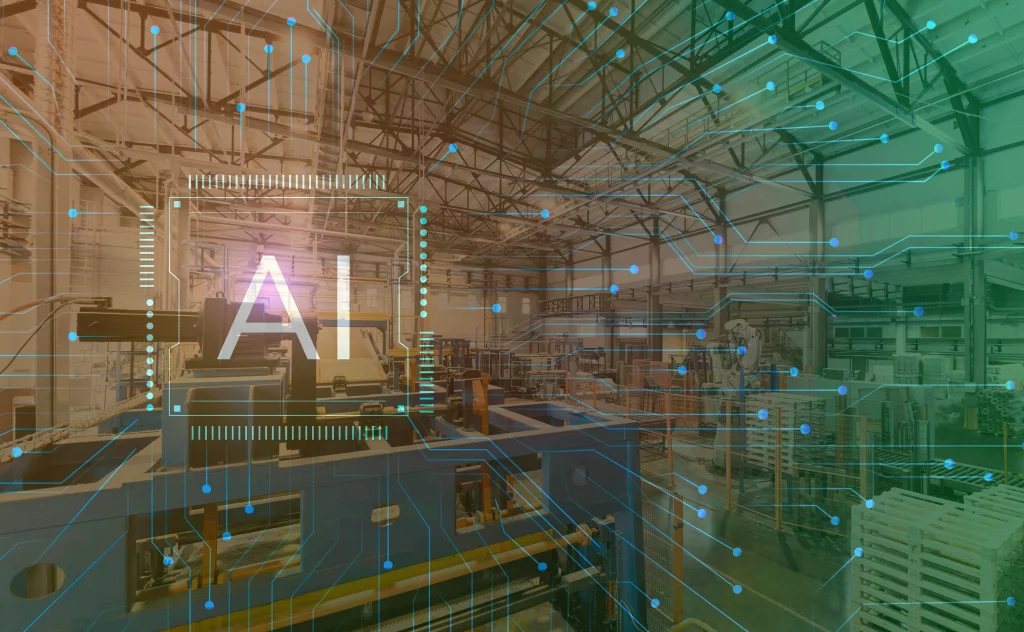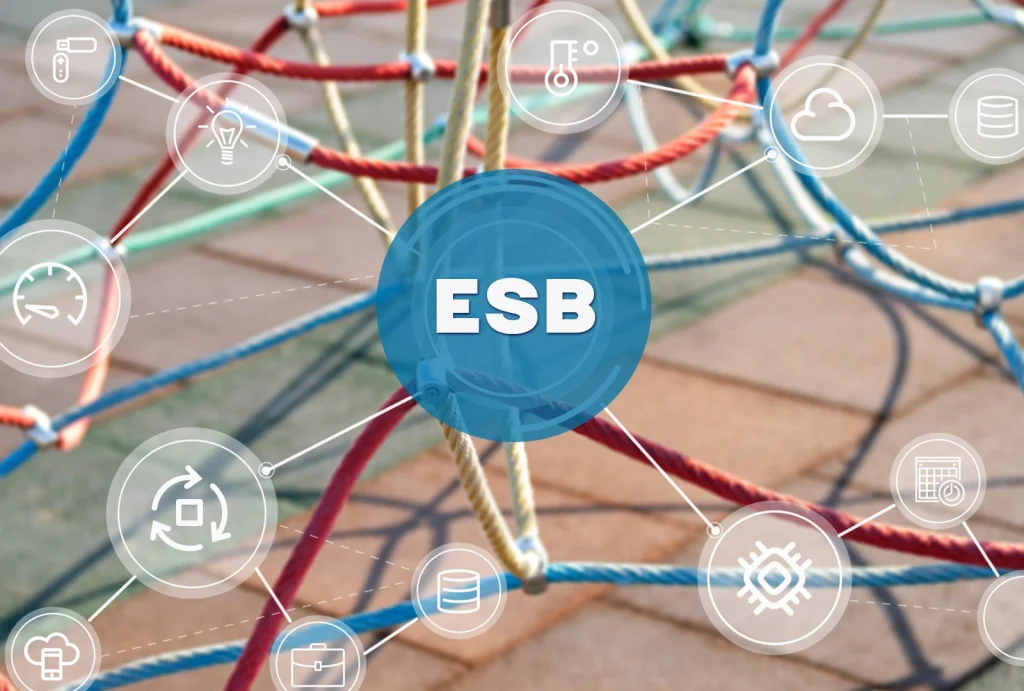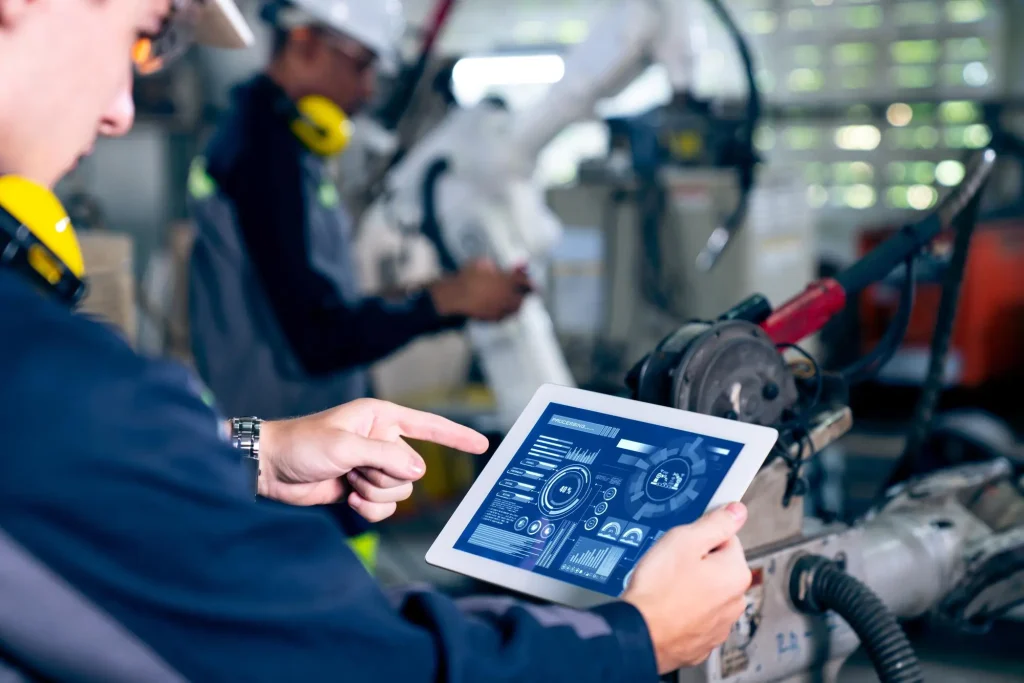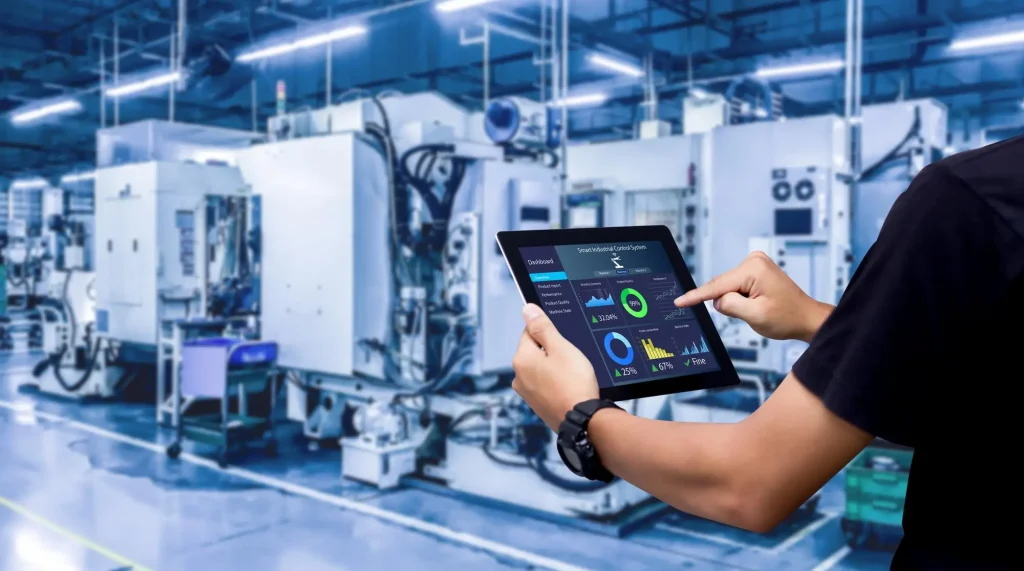Benefits of AI in Manufacturing: A Revolution in Productivity, Quality, and Decision-Making

The era of AI-driven manufacturing is here, and it’s changing the game. With its ability to enhance efficiency, boost productivity, improve quality control, and empower decision-making, AI is poised to revolutionize the manufacturing landscape.
How does ESB work?

Discover the power of Enterprise Service Bus for seamless integration between disparate applications and systems. Dive into ESB’s definition, core components, features, and architecture, and learn how it enables effective application integration in a Service-Oriented Architecture.
“Digital Twin & Manufacturing Summit”. Our experience

On Thursday, April 27, the Soft Industry team attended Digital Twin & Manufacturing Summit that took place in München, Germany. At the event, the company had an opportunity to speak to experts about 3d manufacturing, virtual prototype designing, and simulation that can help in enhancing businesses.
What is an Enterprise Service Bus (ESB)?

An ESB is a flexible and scalable integration architecture that facilitates communication and coordination between various applications and services within an enterprise.
How to Implement Quality Management Systems in Manufacturing?

By adopting a QMS that’s in line with the ISO 9001 standard, organizations can reap the benefits of improved efficiency, reduced waste, and enhanced customer satisfaction. But how do you go about implementing a QMS in your manufacturing business?
Quality Management System QMS for manufacturing. Why is this important?

Discover the power of a QMS and its essential components, including Total Quality Management (TQM), Lean Manufacturing, Quality Assurance (QA), Quality Control (QC), Risk Management, and Documentation.
What is digital transformation in manufacturing?

As you navigate this article, you’ll discover the critical trends and strategies driving digital transformation in manufacturing. It’s a thrilling journey of discovery that will leave you with one resounding conclusion: there’s no turning back.
Challenges of Implementing IoT in Industry 4.0

The challenges of implementing IoT in Industry 4.0 are significant, but they are by no means insurmountable. By addressing security and privacy concerns, ensuring integration with existing systems, and managing the costs of implementation, businesses can successfully navigate the complex landscape of IoT adoption.
Benefits of IoT in Industry 4.0

The Internet of Things has been a driving force behind the transition to Industry 4.0, revolutionizing traditional manufacturing and industrial practices. By leveraging IoT platforms, sensor technology, cloud computing, real-time monitoring, quality control, and automation, businesses can unlock unprecedented levels of efficiency, safety, and cost savings.
Internet of Things in Industry 4.0: What is the Role of IoT?

Internet of Things (IoT) enables interconnected devices, systems, and processes to communicate seamlessly, providing valuable insights and facilitating automation that optimizes industrial operations.